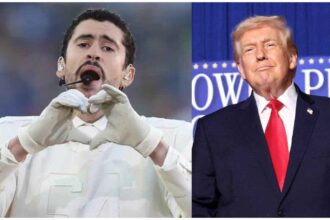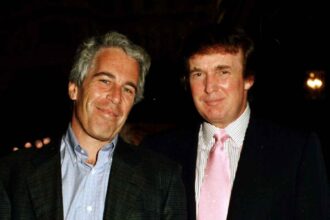President Donald Trump has announced a fresh wave of international outreach, including formal letters to foreign nations outlining tax rates that the US intends to impose on imported goods. During a business roundtable with UAE representatives on Friday, Trump emphasized the growing international appetite for negotiations with the United States.
“We’ve got 150 countries that want to make deals,” Trump said. “But it’s not physically possible to meet with that many all at once.”
According to Trump, Treasury Secretary Scott Bessent and Commerce Secretary Howard Lutnick will send letters detailing the tariff structures. The president stated that the proposed tariffs would be “very fair,” but cautioned international partners that doing business in the United States would have significant financial ramifications.
The action comes after continued negotiations between the United States and important trading partners like as the United Kingdom, China, and others. These discussions concentrate upon Trump’s April 2 tariffs, which are the most sweeping and severe penalties levied by the United States in decades.
American stores like Walmart and Target have already feeling the impact. These enterprises, which face the brunt of import duties, generally pass on the costs to customers. This leads to higher costs for everyday things on store shelves.
In a research note dated May 14, Goldman Sachs analysts projected the U.S. effective tariff rate would climb by 13 percentage points this year, reaching levels not seen since the 1930s. “While the exact future of these tariffs remains uncertain,” analysts noted, “they are likely to stay high in the near term.”
Retailers are issuing stark warnings. Walmart announced Thursday it would begin raising prices as early as the end of the month due to the mounting costs of tariffs. Even though Trump said on Monday he would temporarily ease tariffs on Chinese imports, cutting them from 145% to 30% for 90 days, the rate still presents a steep expense for businesses.
“We can only control what’s within our power,” Walmart CEO Doug McMillon said during a Q1 earnings call. “Even reduced, the tariffs still mean higher prices for consumers.”
Trump defended his tough stance, explaining that his goal is to push both foreign and domestic companies to establish manufacturing hubs in the United States. He believes this will revitalize American industry and bring back lost jobs.
During Friday’s session, Trump cited investment interest as proof that the tariffs are working. “We’re probably in the $12 to $13 trillion range,” he said. “That’s between projects already announced and others coming very soon.”
Despite this optimism, trade analysts remain cautious. Many argue that factory investments depend on more than just tariffs. Key factors like labor availability, energy prices, taxes, and regulatory stability often weigh more heavily on business decisions.









